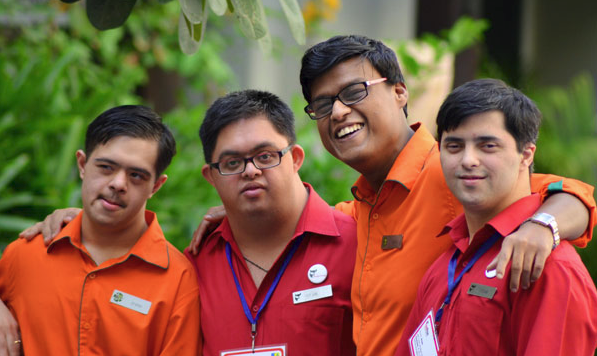Tourism and the hospitality industry are often criticised for creating local quality service employment. There are three major reasons for this. People tend to waiters and room attendants as the primary staff group – they don’t see coach drivers, guides and GMs as representative of the industry in the same way. Second, cultural attitudes to service vary – I’ve never met a subservient French waiter, Maître d’, or sommelier. Third, and perhaps the main reason is that the ‘guests’ are wealthier than the ‘hosts’, as in most service industries the clients are generally wealthier than those providing service. This is true whether the tourists are domestic or international. This inequality is starkest when holiday makers, with leisure and money to travel with are in hotels and resorts in countries and areas with significantly lower standards of living.
There is another view, the industry has been poor at making the positive case. Of course not all employment in tourism and hospitality can be viewed positively. There are issues of poor wages, modern slavery, excessive hours, poor terms and conditions, lack of union recognition, equal opportunity and high staff turnover.
However, there is good practice in the industry. The tourism and hospitality industries remain remarkably open, many reach GM or Board level having started in entry level jobs. Others who make it to front office or who excel in bar or restaurant service are “poached” to work in finance or sales because of their social and hospitality skills. We don’t talk enough about the progression which advantages so many in the industry. The sector provides entry level jobs for young people and part-time work for people who, for a variety of reasons, do not want full time work. We don’t talk enough about that.
There are many parts of the world, many of them in Europe and North America, where a tourism job is sought after either as a career or for the additional income it can provide
The purpose of the World Responsible Tourism Awards is to inspire, educate and challenge. Therefore, this year one of the categories is Best for Employment. We are looking for tourism businesses that create places to work which are supportive, fair and empowering – and look beyond meeting legal minimum requirements. This category is for organisations for whom the belief and practice of fair wages and decent working conditions are fundamental. These organisations also celebrate the skills of local people, employ local staff and offer training and progression opportunities.

In 2016, Lemon Tree Hotels won Gold. They stand out as leaders in responsible employment because they have wholly committed to barrier free employment. They are ensuring that the people employed throughout the organisation, front of house and behind the scenes, are from groups of people who, in India, are often otherwise marginalised. Lemon Tree Hotels believe that it has a responsibility to ensure that people with physical, mental, emotional and indeed financial needs are introduced into mainstream employment and well supported throughout. They have removed the barriers that prevent many people from working in tourism.
Their CSR Mission is clear: “We have focused our efforts on creating a socially inclusive work environment which seeks to bring in people of different backgrounds, abilities and ethnicities and offer them work as a unified team with a common goal.”


Lemon Tree Hotels are a fantastic example of how building healthy communities is an integral part of building sustainable businesses.
At International Tourism Partnership, we know that hotels around the world are ideally placed to positively impact the communities in which they are based. Many, as Harold points out, may see a disconnect between the relative prosperity of their guests, compared with the people living nearby. Hotels are often keen to employ local people, and through research we conducted, we believe that for every disadvantaged local person employed at a hotel, up to five others will directly benefit from their secure employment.
But it can be hard for hotels to reach those marginalised communities. Placing job vacancy ads will not reach those most in need of help. That’s why our skills and employability programme, Youth Career Initiative (YCI is so effective and provides an ideal platform for the hotel industry’s to support disadvantaged young people from local communities pursue meaningful careers in the industry. Designed and created with and for the sector, YCI connects hotels with local non-profit organisations to collaborate in recruiting, training and mentoring disadvantaged young people. Now operating in 22 countries and 35 locations around the world, YCI works with many leading hotel groups to offer skills and opportunities to local young people and survivors of human trafficking.
We are thus helping hotels reach those marginalised communities and supporting them to run the programme; creating a pool of keen young talent to recruit from. And we can help hotels attain their gender and diversity targets.
We would recommend any hotel that operates a YCI programme to consider applying for this award.
To learn more about YCI visit http://www.youthcareerinitiative.org/
The negative perception of tourism employment prevails in academica and also in the wider population, not just in the UK but in many parts of the world. While, as the article suggets, there are reasons for this, the positive aspects of tourism work are rarely recognised fully. Tourism has and continues to provide meaningful careers, not just jobs, for many people.It would be great to see applications for the ‘Best for Employment’ category as the industry needs to demonstrate that good working practices exist; we need examples of good practice, to inspire others and to show how it can be done.